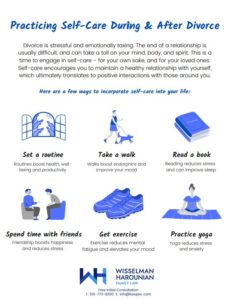View our coping techniques guide.

We can cultivate gratitude, even six feet apart, in various ways. Consider incorporating one or more of the following:
Start small – make gratitude a habit, when a negative thought pops into your mind, counter it with a positive one.
Ready to level up? Start a gratitude journal to keep track of what you are grateful for
Reach out to someone you care about via Zoom or in person
Gratitude affirmations
- I invite gratitude into my heart every day.
- I’m grateful for another year to make happy memories.
- I am present and in the moment.
Try a gratitude meditation. Here’s one:
Let go of any grudges, forgive those who may have slighted you to allow room for gratitude
1 Emmons, R. (n.d.). Why gratitude is good. Greater Good. Retrieved November 12, 2021, from https://greatergood.berkeley.edu/article/item/why_gratitude_is_good.
2 Froh, J. J., Sefick, W. J., & Emmons, R. A. (2008). Counting blessings in early adolescents: An experimental study of gratitude and subjective well-being. Journal of School Psychology, 46(2), 213–233. https://doi.org/10.1016/j.jsp.2007.03.005
3 Jackowska, M., Brown, J., Ronaldson, A., & Steptoe, A. (2016). The impact of a brief gratitude intervention on subjective well-being, biology and sleep. Journal of Health Psychology, 21(10), 2207–2217. https://doi.org/10.1177/1359105315572455
4 Digdon, N., & Koble, A. (2011). Effects of constructive worry, imagery distraction, and gratitude interventions on sleep quality: A pilot trial. Applied Psychology: Health and Well-Being, 3(2), 193–206. https://doi.org/10.1111/j.1758-0854.2011.01049.x
The COVID pandemic has been a source of panic, stress and loss for most, which may be heightened for those in the midst of divorce. Divorce may pose changes to daily and holiday routines, and interfere with work and school obligations.
It is perhaps more important than ever to recognize the people and opportunities that bring us joy during these difficult times. During periods of change and uncertainty, adopting a grateful mindset can help us transform life’s challenges into ones which build resilience. “There is evidence that grateful people are more resilient to stress in general, whether we’re talking about minor everyday hassles or major personal upheavals, or simply the stress of the holidays” ” says Robert A. Emmons, Psychology professor at University of California, Davis and founding editor in chief of the “Journal of Positive Psychology.”1
Research has linked positive emotions like gratitude to health and wellness.2 Consciously focusing on gratitude can help you cope with the logistical and emotional post-divorce hardships. Try turning your attention to what remains after divorce: kids, career, health, etc. Counting blessings has clear medicinal benefits as well. Several studies have examined the relationship between gratitude and physical health markers such as cardiovascular health, pain perception, and sleep.3 Gratitude was found to elicit increased optimism and sleep quality along with decreased diastolic blood pressure.



